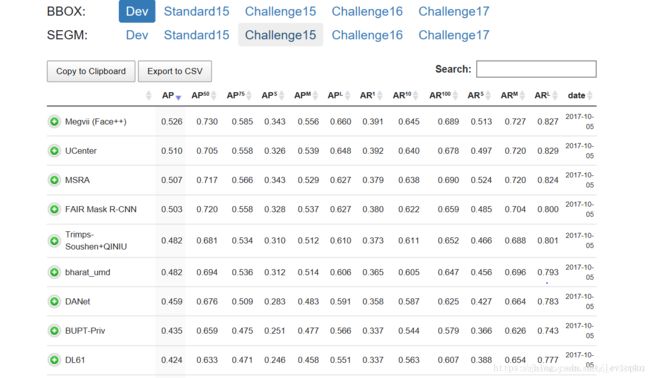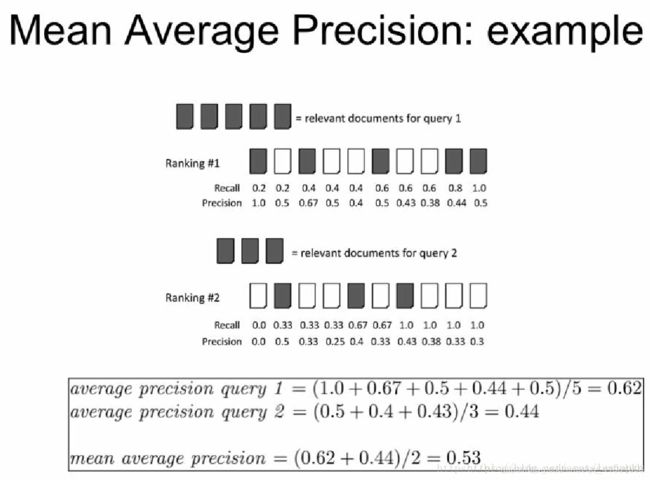- python automl_自动化的机器学习(AutoML):将AutoML部署到云中
编辑推荐:在本文中,将介绍一种AutoML设置,使用Python、Flask在云中训练和部署管道;以及两个可自动完成特征工程和模型构建的AutoML框架。本文来自于搜狐网,由火龙果软件Alice编辑、推荐。AutoML到底是什么?AutoML是一个很宽泛的术语,理论上来说,它囊括从数据探索到模型构建这一完整的数据科学循环周期。但是,我发现这个术语更多时候是指自动的特征预处理和选择、模型算法选择和超
- 利用Python实现QQ实时到账 免签支付 原创
0xdF
Python学习python
原创转载请注明出处核心部分:解决QQ的登录验证问题主要利用python的selenium库和QQ的快速登录实现登录网页再利用抓到的json来输出今日的订单情况直接上代码importrequestsimporttimeimportosfromseleniumimportwebdriverimportsysimportshutilimportjson'''注意:要实现QQ钱包实时到账需要在服务器上登录
- python--自动化的机器学习(AutoML)
Q_ytsup5681
python自动化机器学习
自动化机器学习(AutoML)是一种将自动化技术应用于机器学习模型开发流程的方法,旨在简化或去除需要专业知识的复杂步骤,让非专家用户也能轻松创建和部署机器学习模型**[^3^]。具体介绍如下:1.自动化的概念:自动化是指使设备在无人或少量人参与的情况下完成一系列任务的过程。这一概念随着电子计算机的发明和发展而不断进化,从最初的物理机械到后来的数字程序控制,再到现在的人工智能和机器学习,自动化已经渗
- 【Python】人脸识别
宅男很神经
python开发语言
第一章:计算机视觉与图像处理的基石在深入人脸识别之前,我们必须首先牢固掌握计算机视觉和图像处理的基本概念。人脸,本质上就是一张复杂的图像,对图像的理解是所有高级视觉任务的起点。1.1图像的本质:像素与数字化表示图像,在我们看来是连续的画面,但在计算机内部,它却是离散的数值矩阵。1.1.1什么是像素?图像的最小单元像素(Pixel),是构成数字图像的最小单位。可以将其想象成一个微小的彩色点。一张数字
- python 函数
校园伴侣
函数函数也是一个对象对象是内存中专门用来存储数据的一块区域,函数可以用来保存一些可执行的代码,并且可以在需要时,对这些语句进行多次的调用创建函数:def函数名([形参1,形参2,…形参n]):代码块函数名必须要符合标识符的规范(可以包含字母、数字、下划线、但是不能以数字开头)函数中保存的代码不会立即执行,需要调用函数代码才会执行-调用函数:函数对象()-定义函数一般都是要实现某种功能的定义函数de
- (四)Python总结笔记:函数
Laura_Wangzx
Python学习笔记python
Python总结笔记(四)函数python中的函数函数中的参数变量作用域偏函数PFA递归函数高阶函数BIFs中的高阶函数匿名函数lambda闭包Closure装饰器Decorator函数式编程FunctionalProgramming1.python中的函数■函数的意义:■1.对输入进行变换映射后输出,可以进行反复调用。以函数名对代码块进行封装■2.过程化VS结构化■函数的创建及结构:■定义函数名
- Python 算法基础篇之线性搜索算法:顺序搜索、二分搜索
挣扎的蓝藻
Python算法初阶:入门篇python算法开发语言
Python算法基础篇之线性搜索算法:顺序搜索、二分搜索引用1.顺序搜索算法2.二分搜索算法3.顺序搜索和二分搜索的对比a)适用性b)时间复杂度c)前提条件4.实例演示实例1:顺序搜索实例2:二分搜索总结引用在算法和数据结构中,搜索是一种常见的操作,用于查找特定元素在数据集合中的位置。线性搜索算法是最简单的搜索算法之一,在一组数据中逐一比较查找目标元素。本篇博客将介绍线性搜索算法的两种实现方式:顺
- Python基础(四)函数
一、函数简介函数也是一个对象。对象是内存中专门用来存储数据的一块区域。函数用来保存一些可执行代码,并且在需要时,可以重复调用。创建函数:def函数名([形参1,形参2,.....形参n]):代码块函数名必须要符合标识符规范可以包含字母、数字、下划线,但不能以数字开头。函数中保存的代码,需要被调用才会执行。调用函数:函数对象()二、函数参数定义函数时,可以在函数名后定义数量不等的形参,多个形参以,隔
- Frida使用指南(三)- Objection
象野VH
Android逆向进阶逆向
1.什么是objectionobjection是基于frida的命令行hook集合工具,可以让你不写代码,敲几句命令就可以对java函数的高颗粒度hook,还支持RPC调用。可以实现诸如内存搜索、类和模块搜索、方法hook打印参数返回值调用栈等常用功能,是一个非常方便的,逆向必备、内存漫游神器。项目地址2.objection环境配置已不更新,要和frida的版本匹配python使用的版本建议大于3
- lesson17:Python函数之递归、匿名函数与变量作用域
目录引言一、递归函数:用自身解构复杂问题1.递归的基本结构2.递归的典型应用场景3.递归的优缺点与优化二、匿名函数:用lambda实现“一句话函数”1.lambda与普通函数的区别2.lambda的典型应用3.lambda的局限性三、变量作用域:理解LEGB规则1、LEGB规则的深度解析(1)Local(局部作用域)(2)Enclosing(嵌套作用域)(3)Global(全局作用域)(4)Bui
- lesson11:Python的字典及方法
你的电影很有趣
windowspython
目录前言一、字典的定义与核心价值创建方式:二、核心特性:键的规则与无序性演变1、键的不可变性与唯一性2、无序性与Python版本差异三、常用操作与方法全解析四、与列表/元组的对比:数据结构选型指南五、高级应用技巧六、避坑指南:常见错误与最佳实践总结前言在Python的“数据结构工具箱”中,字典(Dictionary)无疑是最灵活、最强大的工具之一。无论是存储用户信息、解析JSON数据,还是实现缓存
- Conda 核心命令快速查阅表
拉拉拉拉拉拉拉马
conda
本表旨在提供一个简洁、高效的Conda命令参考,专注于最常用功能的快速查找。1.环境管理(EnvironmentManagement)功能(Function)命令(Command)示例(Example)创建新环境condacreate-n[packages...]condacreate-nmyenvpython=3.9pandas激活环境condaactivatecondaactivatemyen
- frida objection注入时frida.core.RPCException: ReferenceError: ‘ObjC‘ is not defined解决
马戏团小丑
javaandroid
最新的17.0.xx版本frida进行objection注入时会报错PSC:\Users\19583>objection-gcom.example.hellojniexploreC:\Users\19583\AppData\Local\Programs\Python\Python312\Lib\site-packages\objection\utils\update_checker.py:7:Us
- lesson18:Python函数的闭包与装饰器(难)
你的电影很有趣
python开发语言
目录引言闭包:函数式编程的"状态容器"一、闭包的本质与定义二、闭包的三大形成条件三、闭包的工作原理:变量的“持久化”四、闭包的核心应用场景五、闭包的注意事项六、闭包与装饰器的关系装饰器:基于闭包的功能增强工具一.装饰器的定义与作用二.装饰器的实现原理(基于闭包)三、装饰器进阶:灵活扩展功能1.带参数的装饰器2.保留函数元信息3.类装饰器与装饰器嵌套四、装饰器实战案例案例一:时间开销计算(性能监控)
- Python 模块化编程全解析:模块、包与第三方库管理指南
xw3373409564
java前端数据库
模块与包模块化编程是什么?用生活例子秒懂想象你在搭乐高积木:每个小积木块都有特定功能(比如轮子、窗户、墙壁)——这就像模块(一个.py文件,封装了函数或类)。把相关的积木块装进一个盒子里,方便分类和取用——这就像包(一个文件夹,里面装多个模块和子包,带__init__.py标识)。模块化编程的核心思想是:把复杂代码拆成小而独立的"积木",需要时直接拿来用,不用重复造轮子。1.模块的概念模块就是一个
- leetcode 搜索二维矩阵 II python 四分法
DaydayHoliday
利用矩阵左上角元素总是最小,右下角总是最大的特性,将矩阵分成四部分,分别递归。请各位大佬多多提意见。classSolution(object):defsearchMatrix(self,matrix,target):""":typematrix:List[List[int]]:typetarget:int:rtype:bool"""row_num=len(matrix)ifrow_num==0:r
- python 类 实例_Python类的实例详解
weixin_39997173
python类实例
类(class)是一个用户自定义类型,开发者可以将其实例化以获得实例(instance),实例表示这种类型的对象。在Python中,类就是对象,开发者可以像对其他对象那样处理函数,可以在调用函数时传递一个类作为参数,也可以返回一个类作为函数调用的结果。任何对象,即使是一个类对象,都有一个类型。在Python中,类型和类也都是第一类对象。类对象的类型也被称为该类的元类(metaclass)。对象的行
- python的signal
weixin_33690963
python
今天在使用python的signal时,发现第二个传的函数必须是拥有两个函数参数变量的1importsignal2importtime3flag=True4deffunc1(a,b):5print"recieveSIGTERM"6globalflag7print"flag%s"%flag8flag=False9print"flag%s"%flag101112defmain():13signal.s
- python字符串前面加字母_Python基础字符串前加u,r,b,f含义
果呀哎呀妈呀哦呀
python字符串前面加字母
1、字符串前加u例:u"我是含有中文字符组成的字符串。"作用:后面字符串以Unicode格式进行编码,一般用在中文字符串前面,防止因为源码储存格式问题,导致再次使用时出现乱码。2、字符串前加r例:r"\n\n\n\n”#表示一个普通生字符串\n\n\n\n,而不表示换行了。作用:去掉反斜杠的转移机制。(特殊字符:即那些,反斜杠加上对应字母,表示对应的特殊含义的,比如最常见的”\n”表示换行,”\t
- Python 轻量化环境管理利器 UV 入门与 Windows 下安装实战
wangjinjin180
pythonuvwindows
https://www.52runoob.com/index.php/2025/06/19/python-轻量化环境管理利器-uv-入门与-windows-下安装实战/Python轻量化环境管理利器UV入门与Windows下安装实战一、什么是UV(UnikernelVirtualization)UV是一种轻量化的虚拟化技术,能够将应用程序与操作系统内核打包为一个单一的运行镜像,极大减少系统资源占用
- JSON全面解析:轻量级数据交换的核心技术
新人码农11111
jsonpython
目录JSON的本质特征⚙️序列化:数据到字符串的转换反序列化:字符串到数据的还原实际应用场景⚠️常见陷阱与解决方案最佳实践建议在当今数据驱动的时代,JSON(JavaScriptObjectNotation)已成为最流行的轻量级数据交换格式。本文将深入剖析JSON的核心特性及其在Python中的应用,帮助开发者高效处理数据序列化与反序列化。JSON的本质特征JSON采用纯文本格式,具有跨平台、易读
- React-Python项目安装与使用指南
React-Python项目安装与使用指南一、项目目录结构及介绍通常情况下,在克隆了https://github.com/facebookarchive/react-python.git仓库之后,你会看到以下的目录结构:├──README.md#项目的说明文档├──src#源码目录│├──components#React组件存放位置│├──App.py#应用主入口文件│└──index.js#引入
- AI+Python赋能!长时序植被遥感动态分析全攻略:从物候提取到生态评估
梦想的初衷~
土壤植被遥感人工智能遥感植被土壤
在遥感技术与人工智能深度融合的2025年,AI大模型正重塑长时序植被遥感数据分析范式。从Landsat/Sentinel卫星数据的智能化去云处理,到MODIS植被产品的AI辅助质量控制,以ChatGPT、DeepSeeK为代表的大模型技术已成为提升遥感数据处理效率与精度的核心工具——尤其在长时序植被动态监测、物候期精准提取、时空变异归因分析及生态环境质量评估等领域,展现出传统方法难以企及的技术优势
- Python你不知道的二三事(Python基础知识)
日暮凡尘
python开发语言
在上一篇中,我们介绍了Python解释器与编辑器的安装与使用,本次我们这是在进行Python程序的编译。我会根据我个人的学习进度进行更新,如有遗漏或错误,欢迎指正。变量与常量变量创建一个新的py文件,我们就可以开始编程了。关于变量,就是一些我们自定义的值,如a=10num=100其中a,num就是我所定义的变量,变量的命名较为自由,但也有一些规则需要遵守:1.变量由数字、字母、下划线(_)组成。n
- pytest-bdd 行为驱动自动化测试
东汉末年出bug
pytestpythonpytest-bdd
引言pytest-bdd是一个专为Python设计的行为驱动开发(BDD)测试框架,它允许开发人员使用自然语言(如Gherkin)来编写测试用例,从而使测试用例更易于理解和维护。安装通过pip安装pipinstallpytest-bdd介绍特性文件(FeatureFile):定义了要测试的系统功能。通常以.feature为扩展名,并使用Gherkin语言编写。特性文件包含特性名称、描述以及一个或多
- 使用Spire.Doc.Free在Python中为Word文档添加批注
Ven%
pythonpythonword批注
文章目录技术背景环境准备完整实现代码功能说明:注意事项:总结在文档协作和审阅过程中,批注是极其重要的功能。本文将详细介绍如何使用Python的Spire.Doc.Free库为Word文档添加批注,并提供一个完整的解决方案。技术背景Spire.Doc.Free是一个功能强大且免费的Python库,用于处理Word文档。虽然免费版本有一些限制(如文档处理页数限制等),但它提供了丰富的API用于文档操作
- 深入TA-Lib:量化技术指标详解
深入TA-Lib:量化技术指标详解本文系统讲解TA-Lib技术指标分析,涵盖基础、数据处理、趋势与动量指标、均量线、布林线等,并结合Python代码与大数据、机器学习实战案例,助力读者掌握量化交易实战技巧。本文系统梳理了TA-Lib技术指标分析的核心内容,包括TA-Lib基础、数据处理、趋势与动量指标、均量线、布林线等关键技术指标分析方法,并结合Python代码示例与大数据、机器学习的融合实战案例
- 【python做接口测试的学习记录day6——pytest+yaml+allure自动化测试框架之URL拼接】
小丫么小二郎~
学习pytestpython功能测试测试工具
在之前的测试框架中,可以发现的是,我们的yaml数据中所有的url中的除了路径不同外,其余都是相同的,我们想办法将这一部分自动化,这样的yaml中写用例url的时候就不用再每次都写上域名,只需要输入路径即可首先我们需要更改下之前的用例yaml文件中的url,将域名删除只留下路径即可,例如:接下来我们在根目录创建一个config.yam文件,用于存储我们的URL中的公共部分,这里由于公司相关,我隐藏
- 【python做接口测试的学习记录day9——pytest自动化测试框架之yaml数据驱动封装】
小丫么小二郎~
pytestpythonpycharm接口测试用例
之前我们的框架中,如果有多个测试用例,则需要在yaml文件中写入多个用例,而每个用例可能不同的仅仅只是个别参数值,这就导致很多重复代码,现在我们使用数据驱动就可以解决这个问题了。我依旧采用之前的登录接口为例,简单记录一下数据驱动封装的全过程一、DDT数据驱动yaml文件在根目录下创建包datas,用来存放我们的数据驱动yaml文件,在datas下新建一个get_token_data.yaml文件,
- AI 人工智能与 Copilot 碰撞出的火花
AI天才研究院
AI大模型企业级应用开发实战人工智能copilotai
AI人工智能与Copilot碰撞出的火花关键词:AI人工智能、Copilot、代码辅助、智能编程、人机协作、软件开发、技术创新摘要:本文深入探讨了AI人工智能与Copilot碰撞所产生的一系列效应。首先介绍了相关背景,包括目的、预期读者、文档结构和术语表。接着阐述了核心概念与联系,展示了其原理和架构的示意图及流程图。详细讲解了核心算法原理和具体操作步骤,并通过Python代码进行说明。同时给出了数
- log4j对象改变日志级别
3213213333332132
javalog4jlevellog4j对象名称日志级别
log4j对象改变日志级别可批量的改变所有级别,或是根据条件改变日志级别。
log4j配置文件:
log4j.rootLogger=ERROR,FILE,CONSOLE,EXECPTION
#log4j.appender.FILE=org.apache.log4j.RollingFileAppender
log4j.appender.FILE=org.apache.l
- elk+redis 搭建nginx日志分析平台
ronin47
elasticsearchkibanalogstash
elk+redis 搭建nginx日志分析平台
logstash,elasticsearch,kibana 怎么进行nginx的日志分析呢?首先,架构方面,nginx是有日志文件的,它的每个请求的状态等都有日志文件进行记录。其次,需要有个队 列,redis的l
- Yii2设置时区
dcj3sjt126com
PHPtimezoneyii2
时区这东西,在开发的时候,你说重要吧,也还好,毕竟没它也能正常运行,你说不重要吧,那就纠结了。特别是linux系统,都TMD差上几小时,你能不痛苦吗?win还好一点。有一些常规方法,是大家目前都在采用的1、php.ini中的设置,这个就不谈了,2、程序中公用文件里设置,date_default_timezone_set一下时区3、或者。。。自己写时间处理函数,在遇到时间的时候,用这个函数处理(比较
- js实现前台动态添加文本框,后台获取文本框内容
171815164
文本框
<%@ page language="java" import="java.util.*" pageEncoding="UTF-8"%>
<!DOCTYPE html PUBLIC "-//W3C//DTD XHTML 1.0 Transitional//EN" "http://w
- 持续集成工具
g21121
持续集成
持续集成是什么?我们为什么需要持续集成?持续集成带来的好处是什么?什么样的项目需要持续集成?... 持续集成(Continuous integration ,简称CI),所谓集成可以理解为将互相依赖的工程或模块合并成一个能单独运行
- 数据结构哈希表(hash)总结
永夜-极光
数据结构
1.什么是hash
来源于百度百科:
Hash,一般翻译做“散列”,也有直接音译为“哈希”的,就是把任意长度的输入,通过散列算法,变换成固定长度的输出,该输出就是散列值。这种转换是一种压缩映射,也就是,散列值的空间通常远小于输入的空间,不同的输入可能会散列成相同的输出,所以不可能从散列值来唯一的确定输入值。简单的说就是一种将任意长度的消息压缩到某一固定长度的消息摘要的函数。
- 乱七八糟
程序员是怎么炼成的
eclipse中的jvm字节码查看插件地址:
http://andrei.gmxhome.de/eclipse/
安装该地址的outline 插件 后重启,打开window下的view下的bytecode视图
http://andrei.gmxhome.de/eclipse/
jvm博客:
http://yunshen0909.iteye.com/blog/2
- 职场人伤害了“上司” 怎样弥补
aijuans
职场
由于工作中的失误,或者平时不注意自己的言行“伤害”、“得罪”了自己的上司,怎么办呢?
在职业生涯中这种问题尽量不要发生。下面提供了一些解决问题的建议:
一、利用一些轻松的场合表示对他的尊重
即使是开明的上司也很注重自己的权威,都希望得到下属的尊重,所以当你与上司冲突后,最好让不愉快成为过去,你不妨在一些轻松的场合,比如会餐、联谊活动等,向上司问个好,敬下酒,表示你对对方的尊重,
- 深入浅出url编码
antonyup_2006
应用服务器浏览器servletweblogicIE
出处:http://blog.csdn.net/yzhz 杨争
http://blog.csdn.net/yzhz/archive/2007/07/03/1676796.aspx
一、问题:
编码问题是JAVA初学者在web开发过程中经常会遇到问题,网上也有大量相关的
- 建表后创建表的约束关系和增加表的字段
百合不是茶
标的约束关系增加表的字段
下面所有的操作都是在表建立后操作的,主要目的就是熟悉sql的约束,约束语句的万能公式
1,增加字段(student表中增加 姓名字段)
alter table 增加字段的表名 add 增加的字段名 增加字段的数据类型
alter table student add name varchar2(10);
&nb
- Uploadify 3.2 参数属性、事件、方法函数详解
bijian1013
JavaScriptuploadify
一.属性
属性名称
默认值
说明
auto
true
设置为true当选择文件后就直接上传了,为false需要点击上传按钮才上传。
buttonClass
”
按钮样式
buttonCursor
‘hand’
鼠标指针悬停在按钮上的样子
buttonImage
null
浏览按钮的图片的路
- 精通Oracle10编程SQL(16)使用LOB对象
bijian1013
oracle数据库plsql
/*
*使用LOB对象
*/
--LOB(Large Object)是专门用于处理大对象的一种数据类型,其所存放的数据长度可以达到4G字节
--CLOB/NCLOB用于存储大批量字符数据,BLOB用于存储大批量二进制数据,而BFILE则存储着指向OS文件的指针
/*
*综合实例
*/
--建立表空间
--#指定区尺寸为128k,如不指定,区尺寸默认为64k
CR
- 【Resin一】Resin服务器部署web应用
bit1129
resin
工作中,在Resin服务器上部署web应用,通常有如下三种方式:
配置多个web-app
配置多个http id
为每个应用配置一个propeties、xml以及sh脚本文件
配置多个web-app
在resin.xml中,可以为一个host配置多个web-app
<cluster id="app&q
- red5简介及基础知识
白糖_
基础
简介
Red5的主要功能和Macromedia公司的FMS类似,提供基于Flash的流媒体服务的一款基于Java的开源流媒体服务器。它由Java语言编写,使用RTMP作为流媒体传输协议,这与FMS完全兼容。它具有流化FLV、MP3文件,实时录制客户端流为FLV文件,共享对象,实时视频播放、Remoting等功能。用Red5替换FMS后,客户端不用更改可正
- angular.fromJson
boyitech
AngularJSAngularJS 官方APIAngularJS API
angular.fromJson 描述: 把Json字符串转为对象 使用方法: angular.fromJson(json); 参数详解: Param Type Details json
string
JSON 字符串 返回值: 对象, 数组, 字符串 或者是一个数字 示例:
<!DOCTYPE HTML>
<h
- java-颠倒一个句子中的词的顺序。比如: I am a student颠倒后变成:student a am I
bylijinnan
java
public class ReverseWords {
/**
* 题目:颠倒一个句子中的词的顺序。比如: I am a student颠倒后变成:student a am I.词以空格分隔。
* 要求:
* 1.实现速度最快,移动最少
* 2.不能使用String的方法如split,indexOf等等。
* 解答:两次翻转。
*/
publ
- web实时通讯
Chen.H
Web浏览器socket脚本
关于web实时通讯,做一些监控软件。
由web服务器组件从消息服务器订阅实时数据,并建立消息服务器到所述web服务器之间的连接,web浏览器利用从所述web服务器下载到web页面的客户端代理与web服务器组件之间的socket连接,建立web浏览器与web服务器之间的持久连接;利用所述客户端代理与web浏览器页面之间的信息交互实现页面本地更新,建立一条从消息服务器到web浏览器页面之间的消息通路
- [基因与生物]远古生物的基因可以嫁接到现代生物基因组中吗?
comsci
生物
大家仅仅把我说的事情当作一个IT行业的笑话来听吧..没有其它更多的意思
如果我们把大自然看成是一位伟大的程序员,专门为地球上的生态系统编制基因代码,并创造出各种不同的生物来,那么6500万年前的程序员开发的代码,是否兼容现代派的程序员的代码和架构呢?
- oracle 外部表
daizj
oracle外部表external tables
oracle外部表是只允许只读访问,不能进行DML操作,不能创建索引,可以对外部表进行的查询,连接,排序,创建视图和创建同义词操作。
you can select, join, or sort external table data. You can also create views and synonyms for external tables. Ho
- aop相关的概念及配置
daysinsun
AOP
切面(Aspect):
通常在目标方法执行前后需要执行的方法(如事务、日志、权限),这些方法我们封装到一个类里面,这个类就叫切面。
连接点(joinpoint)
spring里面的连接点指需要切入的方法,通常这个joinpoint可以作为一个参数传入到切面的方法里面(非常有用的一个东西)。
通知(Advice)
通知就是切面里面方法的具体实现,分为前置、后置、最终、异常环
- 初一上学期难记忆单词背诵第二课
dcj3sjt126com
englishword
middle 中间的,中级的
well 喔,那么;好吧
phone 电话,电话机
policeman 警察
ask 问
take 拿到;带到
address 地址
glad 高兴的,乐意的
why 为什么
China 中国
family 家庭
grandmother (外)祖母
grandfather (外)祖父
wife 妻子
husband 丈夫
da
- Linux日志分析常用命令
dcj3sjt126com
linuxlog
1.查看文件内容
cat
-n 显示行号 2.分页显示
more
Enter 显示下一行
空格 显示下一页
F 显示下一屏
B 显示上一屏
less
/get 查询"get"字符串并高亮显示 3.显示文件尾
tail
-f 不退出持续显示
-n 显示文件最后n行 4.显示头文件
head
-n 显示文件开始n行 5.内容排序
sort
-n 按照
- JSONP 原理分析
fantasy2005
JavaScriptjsonpjsonp 跨域
转自 http://www.nowamagic.net/librarys/veda/detail/224
JavaScript是一种在Web开发中经常使用的前端动态脚本技术。在JavaScript中,有一个很重要的安全性限制,被称为“Same-Origin Policy”(同源策略)。这一策略对于JavaScript代码能够访问的页面内容做了很重要的限制,即JavaScript只能访问与包含它的
- 使用connect by进行级联查询
234390216
oracle查询父子Connect by级联
使用connect by进行级联查询
connect by可以用于级联查询,常用于对具有树状结构的记录查询某一节点的所有子孙节点或所有祖辈节点。
来看一个示例,现假设我们拥有一个菜单表t_menu,其中只有三个字段:
- 一个不错的能将HTML表格导出为excel,pdf等的jquery插件
jackyrong
jquery插件
发现一个老外写的不错的jquery插件,可以实现将HTML
表格导出为excel,pdf等格式,
地址在:
https://github.com/kayalshri/
下面看个例子,实现导出表格到excel,pdf
<html>
<head>
<title>Export html table to excel an
- UI设计中我们为什么需要设计动效
lampcy
UIUI设计
关于Unity3D中的Shader的知识
首先先解释下Unity3D的Shader,Unity里面的Shaders是使用一种叫ShaderLab的语言编写的,它同微软的FX文件或者NVIDIA的CgFX有些类似。传统意义上的vertex shader和pixel shader还是使用标准的Cg/HLSL 编程语言编写的。因此Unity文档里面的Shader,都是指用ShaderLab编写的代码,
- 如何禁止页面缓存
nannan408
htmljspcache
禁止页面使用缓存~
------------------------------------------------
jsp:页面no cache:
response.setHeader("Pragma","No-cache");
response.setHeader("Cache-Control","no-cach
- 以代码的方式管理quartz定时任务的暂停、重启、删除、添加等
Everyday都不同
定时任务管理spring-quartz
【前言】在项目的管理功能中,对定时任务的管理有时会很常见。因为我们不能指望只在配置文件中配置好定时任务就行了,因为如果要控制定时任务的 “暂停” 呢?暂停之后又要在某个时间点 “重启” 该定时任务呢?或者说直接 “删除” 该定时任务呢?要改变某定时任务的触发时间呢? “添加” 一个定时任务对于系统的使用者而言,是不太现实的,因为一个定时任务的处理逻辑他是不
- EXT实例
tntxia
ext
(1) 增加一个按钮
JSP:
<%@ page language="java" import="java.util.*" pageEncoding="UTF-8"%>
<%
String path = request.getContextPath();
Stri
- 数学学习在计算机研究领域的作用和重要性
xjnine
Math
最近一直有师弟师妹和朋友问我数学和研究的关系,研一要去学什么数学课。毕竟在清华,衡量一个研究生最重要的指标之一就是paper,而没有数学,是肯定上不了世界顶级的期刊和会议的,这在计算机学界尤其重要!你会发现,不论哪个领域有价值的东西,都一定离不开数学!在这样一个信息时代,当google已经让世界没有秘密的时候,一种卓越的数学思维,绝对可以成为你的核心竞争力. 无奈本人实在见地

